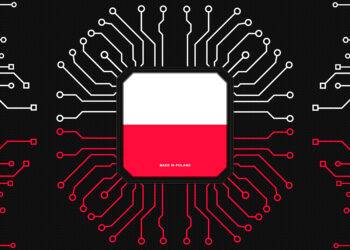In a disturbing development ahead of the European elections, Poland has been identified as a key target for a wave of pro-Russian advertisements on Facebook. These ads, designed to sow discord and spread anti-Ukrainian and anti-European Union sentiments, were exposed by the portal Politico and highlight the growing challenge of combating disinformation on social media platforms.
According to research by non-profit groups AI Forensics and CheckFirst, approximately 275 sponsored posts containing disinformation reached over 3 million Facebook users in France, Germany, Italy, and Poland in May. These posts aimed to undermine Ukraine and its military support, propagating narratives that vilified the country and questioned the legitimacy of the aid provided to it.
“European elections will be a test of our resilience to disinformation,” said Věra Jourová, Vice-President of the European Commission, in an interview with the Polish Press Agency (PAP). This sentiment is underscored by the revelation that the European Commission launched an investigation into these disinformation campaigns a month ago.
The false advertisements leveraged a variety of tactics to reach their audience. In Poland, ads carried messages like, “We are all used to constant reports of thefts in Ukraine, but sometimes the cynicism of Ukrainian thieves surprises us.” Similar ads in Italy, from nine different fake accounts, claimed that Ukrainian conflict spending compromised Italy’s future. These ads misused a 2014 photo of a job queue in Madrid, misleadingly suggesting it depicted current economic woes exacerbated by Ukraine aid.
“The flood of illegal ads violating platform rules is a wake-up call for Meta and regulatory bodies to enforce existing laws more strictly,” said Amaury Lesplingart, co-founder of CheckFirst. Despite Facebook’s policies requiring advertisers to present official identification and limit promotions to their resident country, the enforcement appears lax. Researchers noted that over 65% of political and social issue ads went unlabelled in 16 EU countries, and Meta removed fewer than 5% of these ads.
Meta has contested the researchers’ findings, particularly their definitions of political ads and their failure to account for ads blocked pre-publication. “The Commission is currently analyzing new findings provided by AI Forensics,” said European Commission spokesperson Thomas Regnier, who declined to comment on ongoing proceedings against Meta.
This campaign is a stark reminder of the persistent threat posed by Russian disinformation efforts, particularly as the EU prepares for pivotal elections. The spread of these ads across major European countries signifies a broader strategy to destabilize the region and weaken support for Ukraine.
The ongoing investigation by the European Commission will likely focus on how Meta can enhance its ad monitoring and removal processes to prevent similar breaches in the future. This situation also raises broader questions about the role of social media in political discourse and the measures necessary to safeguard democratic processes.
As the European Union grapples with these challenges, the resilience and vigilance of both regulatory bodies and social media platforms will be crucial in countering disinformation and protecting the integrity of the electoral process.
The issue of disinformation on social media has been escalating, particularly with Russia’s use of these platforms to influence public opinion and political outcomes in Europe and beyond. The sophistication and reach of these campaigns highlight the need for robust mechanisms to detect and neutralize such threats. This latest wave of ads targeting Poland and other EU countries underscores the urgent need for coordinated efforts to bolster cybersecurity and information integrity.


















